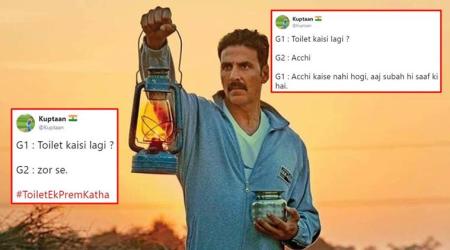 The Internet Archive was among several websites banned by India last year. At that time, it was put down to human stupidity.
The Internet Archive was among several websites banned by India last year. At that time, it was put down to human stupidity.
What exactly was the Department of Telecommunications trying to save us from when it blocked access to the Internet Archive earlier this week? It can scarcely be its vast collection of 25,000 digitised 78 rpm records, or the documentaries about early American music. Archive.org also hosts all the recorded gigs of the Grateful Dead, but their influence has waned and they are no longer threatening. Could it be the archived junk mail of Ted Nelson, the father of hypertext — 18 boxes of physical mailers which map the obsessions of the early internet, from mainframe supercomputers to terminals that look like Mr Spock’s fingers once flew upon them?
But these troves are dwarfed by the Wayback Machine, a historical search engine on Archive.org which preserves snapshots of websites throughout their history. If you want to see what your blog read like in 2009, you’d probably find it there, among the half-billion web pages it freezes in time every week. The snapshot would include those embarrassing posts which you had pulled down, with the benefit of hindsight.
There lies the rub. To make something vanish from the internet, it isn’t enough to lean on a website and get it to pull it down. You must also block access to the Wayback Machine, or the industrious people on Twitter will grab an archived copy and post it. With access to the machine, the objective of the pulldown would be defeated. On the contrary, attention would be drawn to the problematic content.
Fortunately, the ban was rather patchy and anyway, it is pretty easy to get around a GeoIP block with proxies and VPNs and at some point, enterprising sleuths will probably discover why the Indian government blocked the Internet Archive. Hell, just the thought of getting at all that 78 rpm vinyl is a powerful motive for stepping around the ban. Equally, the proliferation of news of the ban on foreign media should be a powerful motive for the government to lift it, before suspicions deepen.
The Internet Archive was among several websites banned by India last year. At that time, it was put down to human stupidity. This year’s iteration may prove to be more interesting, because the government was suspiciously tight-lipped about it. In an interview with technology news webzine Recode in March this year, Internet Archive founder Brewster Kahle had spoken about the disaster-proof distributed and duplicated nature of his electronic holdings. He had said that if the ancient library of Alexandria, which is known principally for its erasure, had the foresight to stash copies in India and China, lost classics (like Aristotle’s theory of comedy, which survives only as a plot device in Umberto Eco’s The Name of the Rose) would still be in print. India and China were indeed liberal seats of learning in the past, but Kahle may wish to change his preferences in favour of Iceland and Sweden in the light of the present political climate.
From the high issue of censorship, let us devolve to the pedestrian, shambolic level of the troll. The embattled troll, to be precise. The Chera nation has struck back at querulous multimedia troll Arnab Goswami and Republic TV for its campaign against Shashi Tharoor, and its biased and sensationalist coverage of political violence in Kerala. Kerala was the state which stood up to beef moralism and the cowboys and cowgirls of the cow belt. Everyone was in the fray, from the chief minister down to the prole in the toddy shop. Now, it has become the only state which can take on a television station without leveraging state power. Its people have proved themselves to be equal to the task, questioning power without the customary niceties.
The British press is also in a questioning mood, and has let it be known, with alarm and admiration, that Queen Elizabeth II toasts life four times a day, with a glass of wine, a dry Martini — it is unknown whether it is shaken or stirred. That’s about half per day of the weekly limit on the humourless scale that has become an obsession with health columnists, moralistic herbalists out to cure people of their pleasures. Sadly, we don’t cover such colourful things in India. The personal indulgences and traits of some top leaders are widely known — and usually appreciated — but they find expression only in the oral tradition. We are denied colour stories in high places, but then, we don’t have lethal paparazzi car chases either. It’s for the better.

